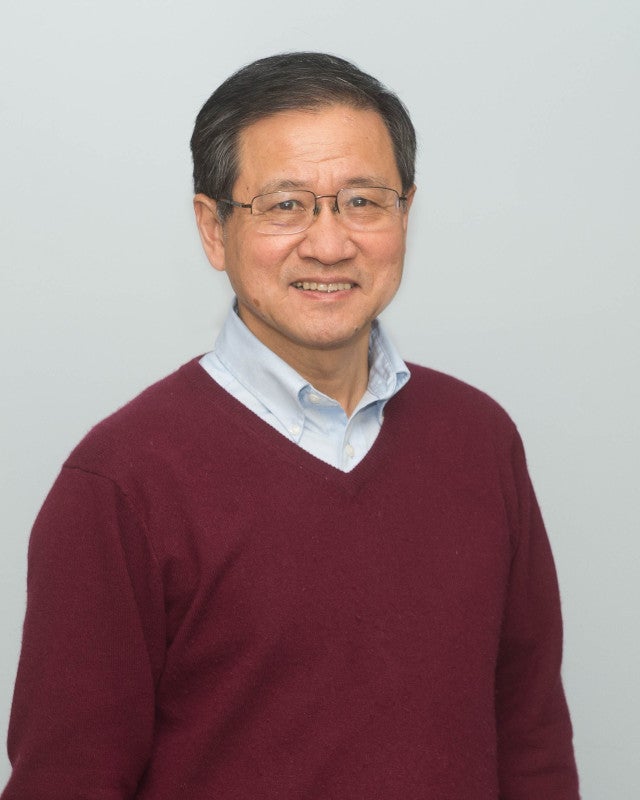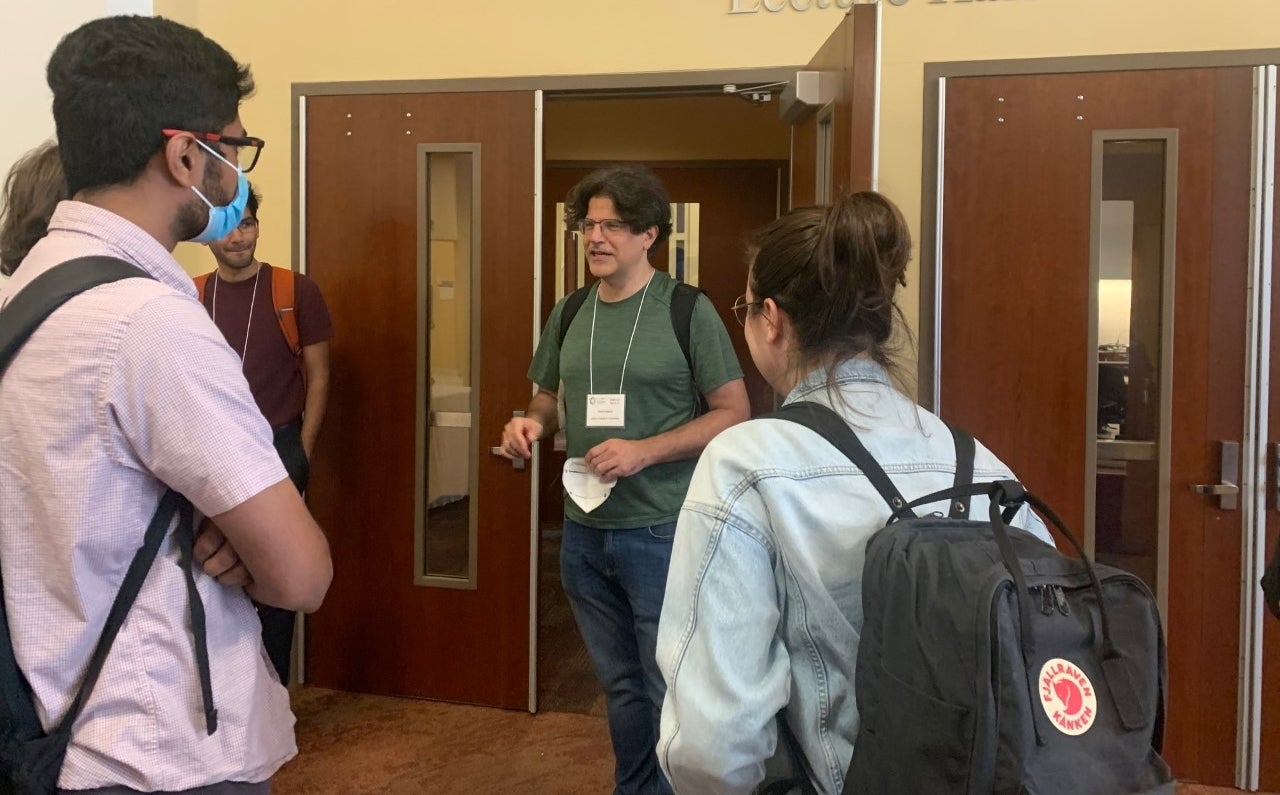
The Pheno Symposium series has put Pitt at the center of a worldwide community of particle physicists and astrophysicists for over a decade. At Pheno 2022 in May, that community gathered in person for the first time since 2019 to share an enthusiasm for exploring phenomenology - the theory and practice of matter and forces that make up the universe. The heart of the series is Pitt’s Tao Han, a distinguished professor of high energy physics, who has organized the symposium at Pitt almost every year since 2012.
Tao Han describes phenomenology as building the bridge between theoretical models and real-world observation. In defining phenomenology, a helpful example is the sub-atomic Higgs-Boson particle – often described in the media as the “God particle.” Although predicted theoretically in the mid-1960s, it was not until 2012 that the existence of Higgs-Boson was confirmed by experiments at the CERN particle accelerator in Switzerland, which won two theorists their Nobel Prize the next year.
The Pheno meetings are a well-loved tradition for generations of students and researchers.
“We plan with state-of-the-art plenary sessions,” explains Han, who also directs the Pittsburgh Particle Physics Astrophysics and Cosmology Center. “That scientific breadth and depth attract the participants, especially students, and we then nurture those students. This may be their first real conference. Many students gave their first talks here. Students form bonds. It’s like a party for them.” The symposium remains free of registration charge for students.
Han did not start the series, but he participated in the small early meetings since he was a student in the late 1980s at the University of Wisconsin-Madison. After taking over the series on his return to Madison in the late 1990s, the series took off with encouragement from students and colleagues and came to Pitt with Han in 2011.
Among the speakers over the years have been Nobel Laureates in Physics Barry Barish, who shared the 2017 prize for the discovery of the gravitational waves, and Adam Riess, who shared the 2011 prize for the discovery of the acceleration of the universe. This year, the concluding speaker was David E. Kaplan, co-producer of the award-winning documentary Particle Fever, featuring Nima Arkani-Hamed of the Institute for Advanced Study in Princeton, a frequent participant at the Pheno meetings.
“It is not the largest meeting in the field, but it is the largest student meeting,” Han says. “The science is cutting edge, and the best science attracts the best students. Students meet prize winners and authors of articles and books they’ve read. I think the meeting model is successful.” This year, 310 people attended seven parallel sessions in person, plus another 150 remote participants.
Adam Leibovich is a professor of physics and associate dean of the School of Arts and Sciences. “It’s hard to sing enough praises about Tao Han’s work on Pheno. He is extremely highly regarded in the community, and he has created a series that is top of the line in covering a broad range of physics but is also a friendly audience – a large fraction of talks are given by graduate students and post-docs. And it’s a great way to highlight Pitt and Pittsburgh – they keep coming back.”
Participants travel to attend the meetings for years from all over the world. The symposium presents an award for the longest distance traveled, this year from India. Han tells stories of students in past years piling into vans and driving cross country. Twelve undergraduate students traveled to the May meeting from Sam Houston University in Texas, among them 70-year-old James Floyd, a recent graduate who after a career in marketing, pursued a lifelong dream of a degree in physics.
Among the attendees at Pheno 2022 was Rob A. Rutenbar, senior vice chancellor for research. Rutenbar – who is not a physicist – came to deliver a short welcome speech and then stayed for the entire session. “This was such a big deal. It was like ‘calling all physicists.’ The students were excited and having fun. People I met told me they come every year. I mean, I’m a computer scientist and I was happy to be there.”
The meetings are supported by the efforts of many people at the Department of Physics and Astronomy – post-docs, graduate students, and staff. Han is particularly appreciative of the support from Pitt IT, and the department’s computer consultant, Gracie Jane Gollinger.
“The symposium makes the Pitt campus very well known,” Han says. Taking place shortly after the end of classes, students are able to cheaply rent dorm rooms, making the symposium affordable. Han takes pride in describing the two-and-a-half-day symposium as “efficient and productive.”
Will the Pheno series continue? Han is certain, listing the many topics to explore – the nature of dark matter, neutrinos, the Higgs boson, and future particle colliders, in the hope for future discoveries in particle physics.
“Curiosity takes human beings to a different level,” Han contemplates. “Basic science is to advance human knowledge. In return, the outcome also benefits society. That has been proven over and over again. Consider that Einstein developed the theory of general relativity of gravity in 1915 – now that theory is critical for your GPS to send you to the correct turn.”
Below right, Particle Fever co-producer David Kaplan speaks with students at Pheno 22. At left is the documentary's official trailer.

